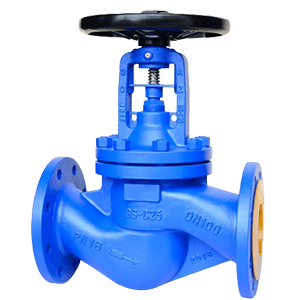What Is a Bellow Valve
A bellow valve, also known as a bellows seal valve, is a type of industrial valve designed to completely prevent leakage of fluid to the external environment. It uses a metal bellows as a dynamic seal element between the valve stem and body, replacing the traditional packing method. This design is particularly effective in toxic, hazardous, flammable, or high-purity fluid systems where leakage must be minimized or eliminated.
How Does a Bellow Valve Work
The metal bellows in the valve expands and contracts as the valve stem moves, creating a hermetic seal that isolates the fluid inside the valve from the atmosphere. The bellows are welded to both the valve stem and the bonnet, ensuring zero stem leakage during operation. A secondary packing seal is often added for double safety.
Where Are Bellow Valves Used
Bellow valves are widely used in industries where leak-free operation is essential:
-
①Marine and shipbuilding (e.g., fuel oil and chemical systems)
-
②Petrochemical and chemical processing
-
③Pharmaceuticals
-
④Nuclear and power plants
-
⑤Semiconductor manufacturing
-
⑥Cryogenic and high-vacuum systems
Advantages of Bellow Valves
-
①Zero stem leakage, ideal for hazardous or flammable media
-
②Long service life due to flexible yet durable bellows
-
③Double sealing system (bellows + packing)
-
④High operational safety and environmental protection
-
⑤Meets stringent industry standards for emission control (e.g., ISO 15848, TA-Luft)
Key Features
-
①Material: Stainless steel, carbon steel, or alloy body
-
②End connections: Flanged, threaded, or welded
-
③Bellows: Multi-ply stainless steel for flexibility and durability
-
④Operation: Manual handwheel or actuator
-
⑤Design types: Globe valve style (most common), angle or Y-pattern
Post time: Jul-18-2025

